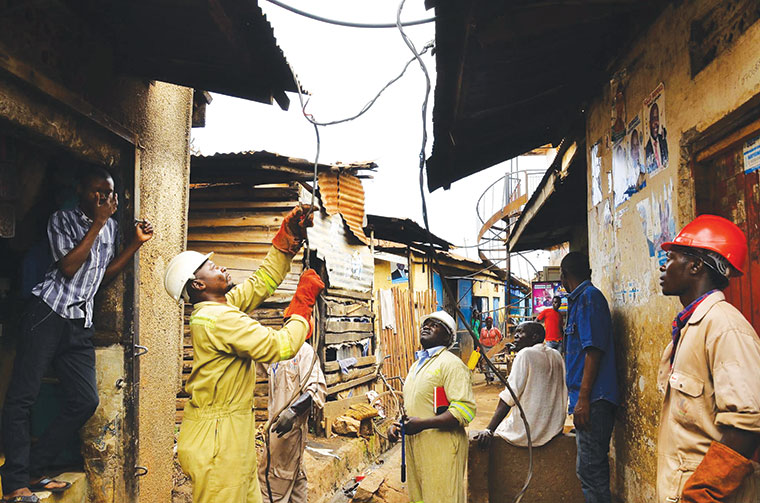Umeme officials inspecting illegal connections A neighbour, without my knowledge, once joined an electricity wire from his house to my meter.
For the four months this subsisted, yours truly was paying an extra Shs 60,000 per month, for power he was not using. Utility firm Umeme later investigated the matter and established that the said neighbour was filching my supply. The neighbour later gloated that tapping meant he could power his plasma screen, two refrigerators and keep two security lights on 24/7 without spending a coin!
For Samuel, a resident of Kibuli, whenever his neighbours illegally tap an overhead line, his energy saver bulbs dim. In the six months to June 2020, Umeme registered an increase in energy losses to 17.4 per cent compared to 16.9 per cent for the same period in 2019.
The rise was a result of a reduction in the number of anti-power theft drives during the Covid-19-induced lockdown. The three per cent energy losses gap to the target of 14.5 per cent translated into Shs 27 billion negative impact on sales, the company noted in its half-year interim financial statement.
With the lockdown lifted, the utility has scaled up field operations and the monthly energy losses are starting to drop.
But what drives people to steal power?
One of the reasons advanced is that the retail tariffs, currently at Shs 750.9 per unit consumed by each household or the Shs 301.7 for an extra-large industrial user, are ‘high’. But that does not explain why many affluent persons or businesses will either bypass their meters or find ways of slowing the swirling discs in the meters.
As to the low-income earners who use power for just lighting one or two bulbs for about six hours and to charge a mobile phone or two, each of the first 15 units a household consumes each month comes at half the price of an egg, Shs 250. Some of the low-income households end up spending no more than Shs 10,000 on power per month.
Desirable as it is to consumers, having artificially low retail tariffs would mean utilities might not recover the costs incurred.
The retail tariff is a function of the generation, transmission and distribution costs divided by the total units of energy multiplied by one minus the target loss factor.
If these costs are not covered in the tariff, the government might have to subsidise the sector. It happened 2005 to 2011 when as […]
